Talal Al Zain, CEO of Mumtalakat, Bahrain Investments
Interview with Talal Al Zain, CEO of Mumtalakat, Bahrain Investments
All of our Bahrain investment policies and strategies include sustainable, environmental investments in Bahrain and other companies.
HE Sheikh Ahmed bin Mohammed Al Khalifa, Minister of Finance declared 2009 will be a challenging year for the financial sector and the global economy.How do you assess the global economic situation? In your opinion, when can we expect to see the recovery of the global economy?
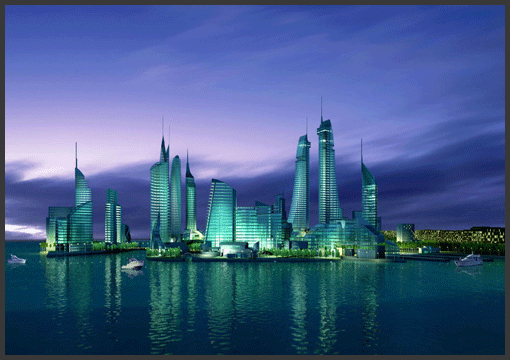
HH Sheikh Ahmed bin Mohamed Al Khalifa was correct in his assessment of the economy, especially in regard to the financial sector. It is going to be challenging; we are seeing some improvement but I think it is short-lived, I think we’re still going to see some challenges towards the end of this year. Regarding recovery, there are two types of recovery. There is the stabilisation of the global economy, which I think we are going to start seeing towards the end of this year and beginning of 2010. However, at the same time, when talking about the financial sector, there is the lending side, which is what generates activity in the economy, and there is the investment side. On the lending side, we are already seeing banks coming back into the market and trying to get into the lending cycle again. On the investment side, as soon as it is believed that the world economy will start to stabilise, markets usually start picking up. Investors, as we all know, are very forward-looking.
What do you think of individuals who state that this recession may last for 10 years or longer?
I don’t think the recession will last 10 years or longer, I think what we’ll probably see is a recovery and then it will stablise but it will stay on a flat basis for a long time, but not necessarily as a recession.
How do you assess the effect of the global economic downturn on Bahrain?
We’re fortunate in Bahrain.First of all, as always, Bahrain has been managed in a conservative and prudent manner.If I look at the financial sector, the way the Central Bank of Bahrain has been operating is very conservative, very prudent; the regulatory system has been put together to protect the market and financial industry in Bahrain in a downturn situation such as the one we are going through now.
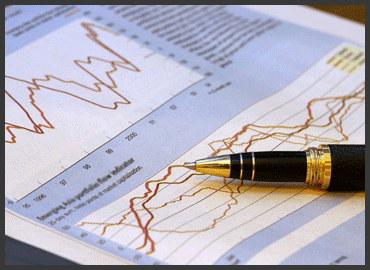
We are lucky in Bahrain that we have launched the Economic Development Board chaired by His Highness the Crown Prince at the right time because the Economic Development Board has been very instrumental in strengthening the local economy. For us here, if I look at the financial sector of Bahrain, we are in a much better position than other countries, partially because of the prudent practices of the central bank, but also if you look at the level of exposure – the lending by commercial banks. Our ratio of loans against deposits is around 65%, which is a very healthy and strong percentage.
You mentioned that “Bahrain’s banking sector is one of the healthiest sectors in the world.” However, in January Moody’s Investors Service downgraded the credit outlook for the Kingdom of Bahrain.
When Moody’s looks at the outlook there is an uncertainty that is touching the financial sector globally and when I say we are in good shape I mean relative to others. We are definitely going to be affected because we are not operating in isolation from the global economy.However, Moody’s is looking at it from a future outlook, again its uncertainty. To me, this is not an indication of the credit worthiness of the country; it is mostly businesses that they are rating.
When we interviewed the CEO of BBK, he mentioned that this is happening because of the low oil prices.
It is possible because this region is dependent to an extent on oil. Of course, we’re fortunate here in Bahrain because we have diversified our income to include sectors other than oil. For example, if you look at the financial sector today, it contributes over 25% to the GDP. Through the Economic Development Board, we are trying to attract direct foreign investments, development industry and we are leveraging on our competitive advantages such as free trade agreements with the US and Singapore. All these factors give us a competitive advantage that helps us to excel.
You mentioned “Mumtalakat will seek a rating before raising any debt.” Could it be affected by the downgraded credit outlook for the kingdom?
Most probably, we will be affected because usually, from a rating point of view, the highest rating we would be able to get is the sovereign rating. But, we’re not worried, we want to be rated before we raise debt for two main reasons.

Firstly, we want to strengthen our transparency because we really believe transparency is very important. This is not because of pressure from the Western countries as a sovereign wealth fund but because we believe that transparency will actually help us; we want to conduct our business in a much better way and the more transparent we are, the better we’re going to be serving ourselves within the investment space.
Mumtalakat is an active shareholder and investor in diverse business and industry sectors in more than 35 commercial enterprises such as Gulf Air and Aluminum Bahrain. What is the role of Mumtalakat in Bahrain’s economic vision 2030?
We are part of that vision. If you look at the way the Economic Development Board is working today, they’re pulling all of the institutions in Bahrain together and as one team we will deliver the 2030 vision. To me, as Mumtalakat, my mandate is to develop wealth for the country and the people of Bahrain and that is Mumtalakat’s contribution to the economy. Secondly, His Highness the Crown Prince, through the Economic Development Board, has always emphasised human capital and for us, as Mumtalakat, one way to contribute to the country is to develop the Bahraini talent through the investments that we have and even through Mumtalakat itself. We want to make sure we follow global best practices when running businesses: to introduce the best corporate governance, for example. All these things should develop the economy of Bahrain in the long run.
How would you assess your corporate structure and companies you are investing in? Is there any particular strategy behind your investments?
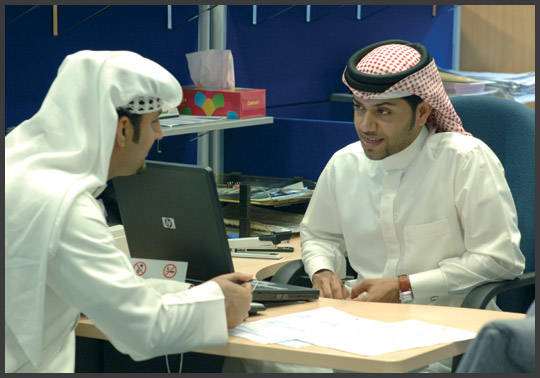
In the past, most of the investments that the government made were strategic. Mumtalakat was set up to keep looking at the strategic side while introducing the commercial aspect and favouring it. This was to develop wealth for the country. We set up Mumtalakat to be one of the best run companies in the country and we are using international best practices as a bench mark: corporate governance at board level and a management structure that ensures Mumtalakat is actually run by management. As we set up our own culture at Mumtalakat, we’re moving it to the portfolio companies that we have. We have already started considering that: we appoint board members who will contribute and enhance the value of these companies. To me, creating the right culture is important because that can determine success.
How do you choose which companies to invest in?
The investments in the portfolio that we have under Mumtalakat today were not made by Mumtalakat; most of the 35 companies that you mentioned are actually companies that have been transferred from the ownership of the government to Mumtalakat. Now, if I look at the sectors that we have already invested in, most of them are sectors that we would like to focus on. For example, leisure and hospitality is a sector that we are interested in today and have already been exposed to. Financial services, transportation and telecommunications are other examples.
Mumtalakat is eyeing stakes in global food, financial, telecoms firms as a part of the investment strategy. Do you see a lot of opportunities in food, telecom and especially financial sectors, which are currently taking a hit from the ongoing global crisis?
We have seen a lot of opportunities across sectors because now companies all over the world have been affected by the global financial crisis and need capital to stabilise their own operations. Some companies are actually looking for capital to take advantage of the existing opportunities so now, across sectors, most companies welcome more capital and these are opportunities for Mumtalakat to take advantage of. Mumtalakat can become partners with these companies in their attempts to grow and take advantage of what’s happening today.
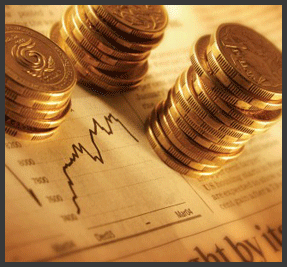
The value of investments held by Mumtalakat fell by about 10-15 percent from around $10 billion as a result of the global economic downturn. Is profitability a cause of concern to you?
First of all, a 10-15 percent drop is the figure I gave in a previous interview but is not actual because that is just a prediction when looking at the current environment. Profitability is a very important factor for us. Again, the Mumtalakat mandate when we first set up was to create wealth, which ties in with profitability. Mumtalakat, in accordance with the strategy of the government of Bahrain through the Economic Development Board, is a long term investor. We don’t get affected by short term economic movements. So yes, profitability is important but we are looking at it on a long term basis.
How confident are you about delivering a better performance in 2009 and 2010?
2009 is a challenging year but the exciting thing about 2009 and 2010 is there are going to be opportunities that we are not going to see again for a long time. The way I look at it, this is an investment period not a return period. So, I measure my success in two ways. Firstly, I see if I am able to deploy capital to take advantage of future value creation. Secondly, I have 35 existing companies so if I am going to take advantage of what is happening today with the low valuation of companies, more available products and more available opportunities, I have to enhance the value of existing investments. It’s a period of investment.
At the same time, it must be very challenging. What is the major challenge you are facing at the moment?
If I consider my portfolio companies, it is probably Gulf Air because it is part of an industry that is facing a lot of challenges today; the airline and travel industries. Companies in these sectors across the globe have been reporting huge losses. However, at the same time, I always try to look at the glass as half full, because if I look at Gulf Air it’s a challenge but at the same time it is a period of investment. If I were to re-fleet Gulf Air, for example, today would be the best time to do so. If I wanted to lease aircraft, there are so many aircraft available today compared to one or two years ago. The same goes for if I wanted to buy new aircraft or accelerate orders I have already put through to Airbus and Boeing; because certain clients are delaying or cancelling their orders, I can benefit by accelerating my orders. So, it is a challenge, but I have to look at it as an opportunity.

Regarding Gulf Air, what is the particular strategy for this business unit?
Gulf Air has a history. It’s among the first airlines to be created in the Gulf region, it has always been known for very high quality service despite a period of weakness that it went through because of its ownership structure but today it’s owned by the government of Bahrain. The purpose of Gulf Air is to contribute to the 2030 vision of Bahrain because without a strong national airline we will not be able to transport people into the country or to the rest of the region to conduct business. So, the long term strategy for Gulf Air is to re-create that strong brand and we have already done so as it is not a difficult thing to achieve. Secondly, we would like to convert Gulf Air to more of a business airline and set it up to accommodate the businessman because our objective in Bahrain is to create a stronger economy and Gulf Air has to be part of that.
Recently, you announced @bahrain a $1 billion fully integrated development for Bahrain next to BIC. Can you tell us more about this development as you mention that this is the first fully integrated development in the region? How is it unique?
The uniqueness of @bahrain is its location: it is opposite Bahrain International Circuit, the track which has a set-up unique both regionally and globally: it is the home of motorsports in the Middle East and has been recognised as one of the best racing tracks in the world. We have hosted six years of Formula One and over 500 million people in the world tune in to Bahrain every year for the period of the race. This gives the businesses created at @bahrain an advantage. The free trade agreement with the United States and Singapore, as well as what we are developing with Europe, should add special value.
Of course, the @bahrain project itself is unique because it’s not a real estate project, it is a business. What we are doing is creating businesses and building real estate to accommodate these businesses. It is going to be a controlled environment so companies that set up there will have all of the facilities that they will need: exhibitions, hotels, a multi-purpose arena, a technology park and an automobile club where people can come and store their high performance cars that will be serviced and they can use the track to drive these cars. There is no other such set-up available around us today.
Mumtalakat Holding Company was voted the most transparent sovereign wealth fund (SWF) in the Gulf according to a research undertaken by the Sovereign Wealth Fund Institute. What is the meaning of this rating to you?

It makes us proud. I always say transparency is very important. What makes me even happier about it is that we did not solicit that rating, the Sovereign Wealth Fund Institute did a study on us and independently reported it. We are very proud of it but I’m not content: I want to reach 10. Currently, we are atseven but I want to reach 10 and we will get there.
Do you think other sovereign wealth funds in the GCC will follow your example?
It is difficult for me to speak on behalf of others but I don’t see why not. I’m sure they want to be transparent too.
What criteria made you the most transparent sovereign wealth fund?
It’s the reporting, management practice and communicating our investment strategy. Mumtalakat was the first sovereign wealth fund in the region that actually reported annual financial figures and that gave us a head start.
Mumtalakat strategy is to balance the portfolio to be 50 percent local, 50 percent global. How confident are you that with the increased international exposure the global economic downturn will not bite into your profits?
That is something that you can never determine from the beginning. As I said earlier, we are not short term investors, we are very long term investors and I believe the current financial crisis will produce investment opportunities that we will not see again for a long time so I am excited about the coming period.
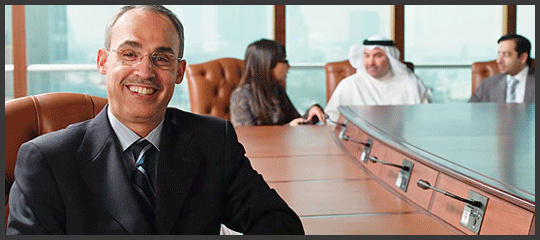
What kind of opportunities are you looking into, speaking globally and geographically?
We are looking at financial services, real estate, the food sector, hospitality and telecommunications. There are very good opportunities. I am an investor, I have no prejudices for or against any location. The only geographical location I will always be interested in is Bahrain; there are good opportunities here. I am looking at the West and the East; that includes North America, Europe and Asia.
What are your strategic goals for 2009 and 2010?
2009 is dedicated to looking at our existing portfolio companies and to taking advantage of what is happening now to enhance the value of these companies and hopefully we will produce good results. As for 2010, we would like to start deploying equity funds to investments.
In terms of culture, what distinguishes you from other sovereign wealth funds and could you expand on the cultural aspect?
At Mumtalakat, in order for us to be successful, we have to be professional in the way we conduct business. So, first of all, integrity is very important; this is the top cultural requirement that we have. Ethics, reform and transparency are also very important factors. Of course, if I am an ethical, professional, high quality institution, I’ll attract the best quality people. We are going through a period where there is more talent available in the market so we are able to attract top quality talent to Mumtalakat. Our board of directors, which is composed mostly of people from the private sector, has a supervisory role over management. We have a business plan and policies and they make sure we apply the strategy. We have created committees within the board: the investment committee, the audit committee, and the compensation committee.
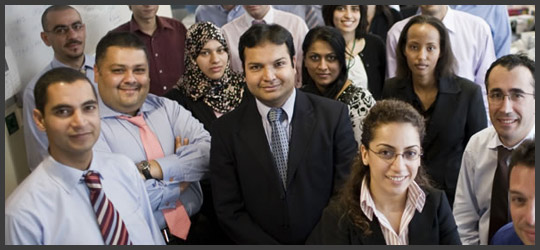
This means there are checks and balances at the management level. When it comes to management, in order for us to compete for talent and to deliver on our mandate, we need to compensate our people the right way. So, we did a study and positioned ourselves relative to investment banks. Because we are trying to build the best culture and the best professional and business environment, there is no prejudice regarding nationality – we go for the right talent. Of course, our long term target is that we foster more Bahrainis to eventually lead this important company. Within our management team, we have committees that are each responsible for completing a specific task. In the top quality investment team that we have attracted, each team manager looks at several existing portfolio companies and each manager has specific targets to reach on new acquisitions. So, we have developed a very professional set up, a performance-driven culture, a flat organisation of the company – we all work together as one team and at the end of the day, we want Mumtalakat to become the destination for talent in Bahrain.
We are going to deliver an award to one company in Bahrain that is oriented towards environment – all aspects of sustainable environment. We would like to know what your opinion is regarding this aspect, which keeps in mind the future effect. What is your policy?
All of our policies and strategies include sustainable, environmental investments in companies. If we look at our existing companies, there is a focus on these issues. For example, if you look at Gulf Air: given the sector that it’s in, part of our investments in Gulf Air is to participate in renewable energy and that is an area that we are focusing on as Mumtalakat.